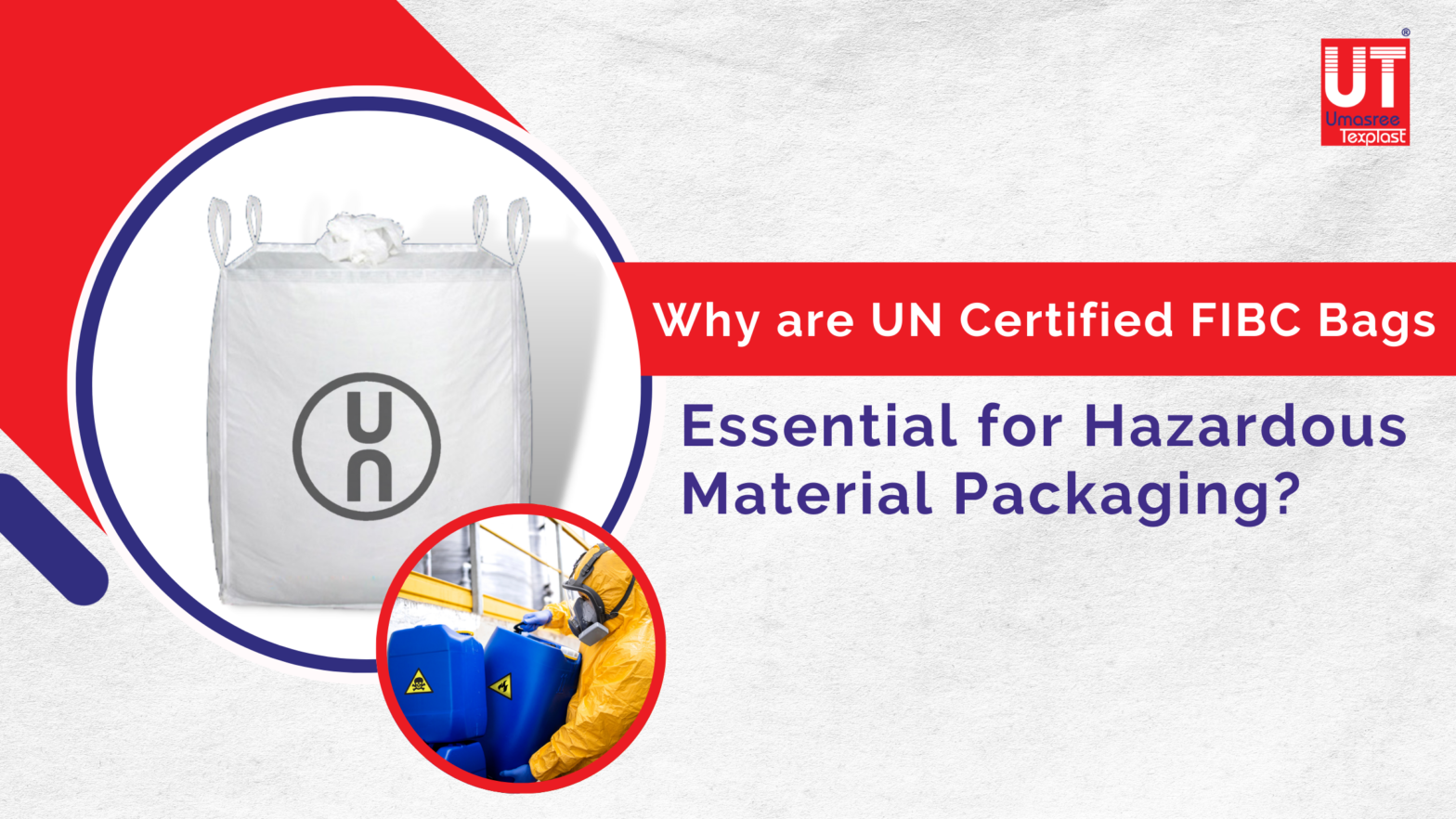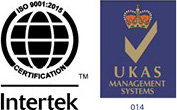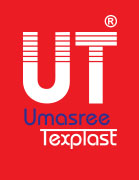Why are UN Certified FIBC Bags Essential for Hazardous Material Packaging?

In today’s global supply chain, safety and compliance are not optional—they are absolute requirements. When it comes to packaging and transporting hazardous goods, industries need solutions that guarantee both security and adherence to international standards. This is where UN-certified FIBC bags play a vital role. These specially designed bulk bags provide a tested, regulated, and globally recognized way to handle, store, and transport hazardous materials without risk to people, property, or the environment.
In this blog, we’ll explore what UN Certified FIBC bags are, why they are crucial for hazardous material packaging, and how industries across the globe rely on them to maintain safety, efficiency, and compliance.
What are UN Certified FIBC Bags?
FIBC bags (Flexible Intermediate Bulk Containers), also known as bulk bags or jumbo bags, are large, durable packaging solutions designed to carry and transport dry, flowable products. But not all FIBC bags are created equal. When hazardous materials such as chemicals, minerals, or other dangerous goods are involved, packaging must comply with the United Nations (UN) regulations on the transport of hazardous goods.
UN Certified FIBC bags are bulk bags that meet stringent international testing and certification standards to ensure they can safely contain and transport materials classified as hazardous. Each bag undergoes rigorous testing to check for:
- Tensile strength and fabric durability
- Drop resistance
- Top lift and stacking safety
- Tear and puncture resistance
- UV resistance
- Electrostatic properties (depending on type)
Once certified, these bags are marked with a unique UN number that denotes their compliance with international standards.
Why Hazardous Material Packaging Requires UN Certified Bags?
Hazardous materials, by definition, carry risks such as toxicity, flammability, reactivity, or environmental harm. Using ordinary bulk packaging for such products can lead to spills, accidents, contamination, and even legal penalties. UN Certified FIBC bags are essential because they:
● Ensure Global Compliance
Many countries follow the UN Recommendations on the Transport of Dangerous Goods (UNRTDG). Using UN-certified FIBC bags ensures compliance with these international safety standards, avoiding shipment delays and regulatory issues.
● Protect Workers and the Environment
These bags are designed to minimize leaks, ruptures, or electrostatic discharges, significantly reducing the risk of accidents. Safe packaging ensures the well-being of workers handling the materials and helps protect the surrounding environment from contamination.
● Support Safe Transportation Across Modes
Hazardous goods often travel via road, rail, sea, or air. UN Certified FIBC bags are tested for performance in multi-modal transport, making them a versatile choice for global supply chains.
● Promote Reliability and Peace of Mind
For companies dealing with sensitive materials, the reliability of UN-certified bulk bags helps maintain reputation, trust, and operational efficiency.
Types of UN Certified FIBC Bags
When it comes to hazardous materials, not all bags are the same. UN Certified FIBC bags are categorized based on material type, electrostatic properties, and construction:
- Type A FIBC Bags – Standard bags made of woven polypropylene, but not suitable for flammable or combustible materials.
- Type B FIBC Bags – Prevent sparks due to low breakdown voltage, but cannot dissipate static charges.
- Type C (Conductive) FIBC Bags – Made of conductive fabrics connected to the ground during use. Ideal for flammable materials.
- Type D (Static Dissipative) FIBC Bags – Use antistatic materials that do not require grounding. These are best for industries dealing with highly flammable hazardous goods.
Each type is chosen depending on the hazard classification of the product and the environment in which it will be handled.
Applications of UN Certified FIBC Bags
UN Certified FIBC bags are used across a wide range of industries where safety and compliance are paramount:
- Chemical Industry: For packaging powders, granules, and solvents that may be toxic or reactive.
- Mining & Minerals: For hazardous ores, concentrates, and additives.
- Agriculture: Fertilizers and pesticides require safe, certified packaging to prevent accidents.
- Construction: Hazardous additives like pigments or resins are often packaged in these bags.
- Waste Management: Safe disposal and transport of hazardous waste materials.
Key Advantages of UN Certified FIBC Bags
1. Safety First
Tested to handle hazardous goods securely, they reduce risks associated with leaks, ruptures, or spills.
2. Durability & Strength
Built from high-strength polypropylene or conductive materials, these bags are engineered to handle heavy loads under extreme conditions.
3. Cost-Efficiency
Compared to rigid containers, UN-certified FIBC bags are lightweight, collapsible, and require less storage space, reducing logistics costs.
4. Customizability
Available in different sizes (commonly 500kg, 1000kg, and 2000kg capacities), fabric strengths, and types, these bags can be tailored to industry-specific needs.
5. Environmental Responsibility
Many certified bags are recyclable or reusable, contributing to more sustainable packaging solutions.
UN Certification Testing Standards
To achieve UN certification, FIBC bags must pass rigorous tests, including:
- Top Lift Test: Ensures the bag can handle its Safe Working Load (SWL).
- Drop Test: Checks durability when dropped from specific heights.
- Topple Test: Tests bag stability under strain.
- Righting Test: Ensures bags can be lifted and set upright safely.
- Tear Test: Measures resistance to tearing under pressure.
- Stacking Test: Evaluates long-term storage stability under heavy loads.
Only after passing these tests are bags marked with a UN Certification code, which is printed directly on the bag.
Why are UN Certified FIBC Bags Essential?
To sum it up, UN Certified FIBC bags are not just another packaging option—they are a necessity for industries handling hazardous materials. They protect workers, ensure compliance with international standards, and safeguard the environment. By eliminating risks associated with transportation and storage, they support businesses in maintaining efficiency, trust, and sustainability.
Conclusion
In an era where global trade and industrial production are growing rapidly, safety and compliance must remain non-negotiable. Whether transporting chemicals, minerals, pharmaceuticals, or hazardous waste, using UN-certified FIBC bags ensures peace of mind for businesses and safety for society.
By investing in certified packaging, companies not only adhere to international regulations but also build a reputation for responsibility and reliability.
Partner with Umasree Texplast for Safe & Certified Solutions
At Umasree Texplast, we specialize in manufacturing UN-certified FIBC bags that meet international standards and deliver uncompromised safety for hazardous material packaging. Our bags are rigorously tested, customizable, and designed to give your business complete peace of mind.
Contact Umasree Texplast today to explore our range of UN-certified FIBC bags and ensure safe, compliant, and efficient packaging for your hazardous goods.





